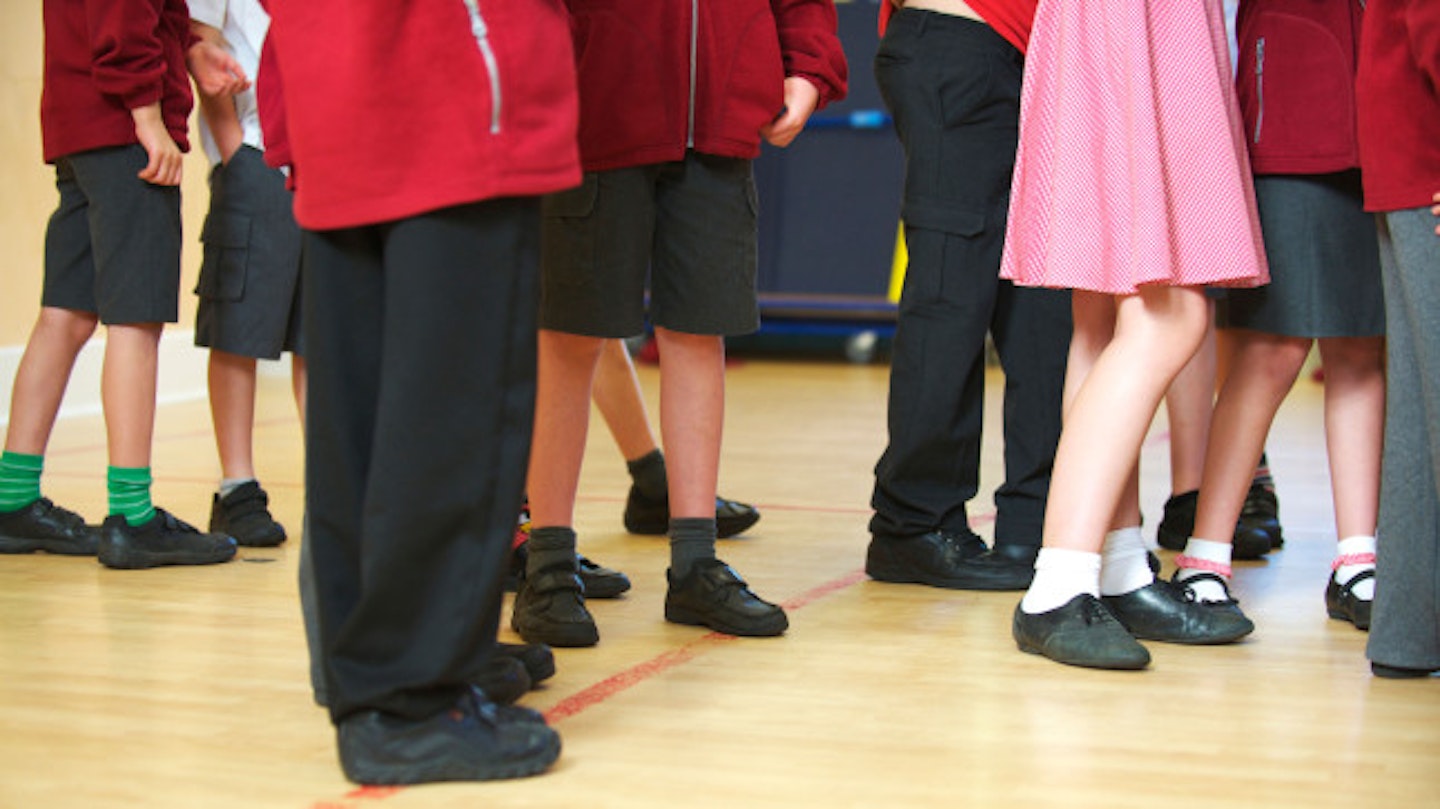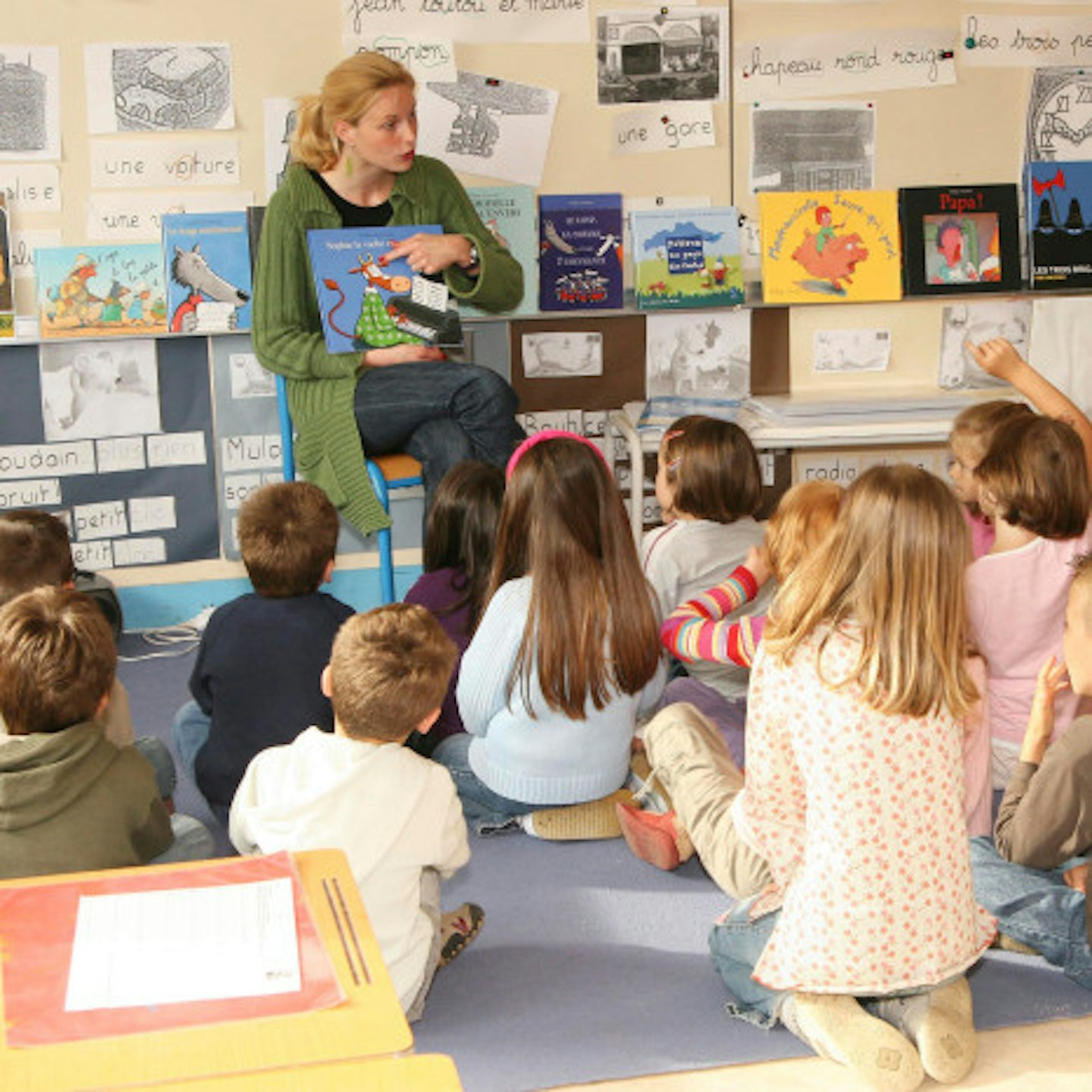September is almost upon us and, with it, comes the end of the school holidays.
Yup, school is starting again - or, as is the case for many four-year-olds, starting for the first time ever.
But, while your child’s first day at school can be tough on both them and you, with a little preparation it’ll be much easier for you to cope.
READ THEM STORIES ABOUT ‘BIG SCHOOL’
Speaking with the NHS, parenting expert Dr Pat Spungin says: “The idea of 'big school' can be very appealing for children, but it can also be quite frightening.
“It's useful to let your child know what's coming by reading them books about starting school and talking to them about it. That will reduce their anxiety."
Some good books to try are:
-
Going To School, by Anne Civardi and Stephen Cartwright
-
I Am Too Absolutely Small For School, by Lauren Child
-
Topsy And Tim Start School, by Janet and Allen Ahlberg
-
Come To School Too, Blue Kangaroo!, by Ian Whybrow and Adrian Reynolds
GIVE THEM A SENSE OF WHAT TO EXPECT
Talk to him about what to expect when they get to school — where they’ll be going, what they’ll be doing, and who will be in class with them.
Before school begins, visit the classroom together at least once, preferably when other children and their future teacher(s) are there. Ask if there are any settling-in sessions that they can attend.

WALK OR DRIVE PAST THE SCHOOL
It’s a good idea to show them their new school before they attend. Incorporating it into their daily walk, or drive, will allow you the opportunity to point out the ‘cool playground’ or the ‘fun sports equipment they can play with’ and so on.
This will also give your little one the opportunity to ask questions about their school, if they need to.
ASK THEM HOW THEY’RE FEELING
Make sure you talk with your child about starting school.
Try asking the following questions:
-
What do you think it will be like?
-
What are you most looking forward to?
-
Is there anything you’re unsure or worried about?
Remember: Try not to bombard your child with endless talk about school – treat it as a matter-of-fact thing, as opposed to a big change in their life.
***
TALK ABOUT YOUR OWN HAPPY SCHOOL MEMORIES
Try talking about your own school experiences, mentioning the games you played at break time, or how much you liked your first teacher. Try to find photos of you at school to show them too!
It might also be worth asking other children in the family - such as cousins, or brothers and sisters - to chat with your little one about all the fun stuff they do at school.***
Remember: Be careful not to introduce worries they haven't considered and try not to pass your own anxieties on. Do not make comments like ‘I hated school’ or ‘I was rubbish at school’, as it will give your little one a negative impression.

ENSURE YOUR LITTLE ONE HAS THE PRACTICAL SKILLS THAT SCHOOLS EXPECT
Speaking with the NHS, Dr Pat Spungin explains that it will be enormously beneficial if your child has the practical skills schools expect before they start. "He or she should know how to sit still, wait and listen.
"This can be especially hard for little boys, who are very physical. They have to be toilet trained and know how to undress and dress themself for PE.
“So ask yourself whether your child is ready to do those things. If not, it's a good idea to teach them those skills.”
Teachers will thank you if your child can:
-
Go to the toilet independently and clean themselves up afterwards (including washing their hands)
-
Recognise their name in written form
-
Eat independently
-
Change their own clothes (teachers can help with tricky buttons or zips if need be, but the more your child can do, the better)
-
Put their coat on
-
Know how to sit still, wait and listen
-
Understand sharing
-
Use a tissue when sneezing. Remind them to ‘catch it, bin it, kill it’ by washing their hands afterwards.
Some experts also advise that you begin phasing out nap time, if your little one enjoys this, in a bid to get them ready for ‘big school’.
PRACTISE MAKES PERFECT
Practise your school morning routine, including getting dressed and eating breakfast in time to leave.
It’s also worth practising the school run, so that you both know what to expect from your morning journey.

CHANGE THEIR BEDTIME REGIME NOW
Your little one needs to get into a regime before school begins, so try phasing out tablet and TV time in favour of bath time and stories.
Get them to bed by the same time each night, to ensure they get their full 9 to 12 hours of sleep. Maybe sit with them at the end of the bed for 10 minutes for a chat, so that they can discuss any worries or fears - or simply enjoy your company before they get to sleep.
GET EVERYTHING ON THE BACK-TO-SCHOOL LIST
Check out your school’s website for a list of all the clothing / equipment they will need for school.
Try to pick up two or three sweatshirts / cardigans, polo shirts / shirts, and skirts / trousers, to provide a bit of leeway when it comes to washing.
Opt for velcro, zip-up or slip-on school shoes if possible, to help your child out. It’s a good idea to have your child wear these around the house, to try and wear them in.
Remember: LABEL EVERYTHING! We mean it; shirts, book bag, PE bags, hats, scarves and more all need to be labelled, or they’ll end up in the lost-and-found bin.
***
COME UP WITH A GOODBYE RITUAL
Reassure your child that you will be coming back to get them at the end of the day - and work out a special parting ritual.
A high-five, or a brief hug and a kiss, are a good way to say goodbye without too much of a long farewell.
Don’t drag it out or let on that you might be upset (save your tears for when you get home!), or they may feel upset too. Instead, keep things matter-of-fact and confident - it will rub off on them.

MAKE SURE YOU KNOW WHERE TO GO ON DAY ONE
You need to be able to answer the following questions:
-
Do you know where you need to take your child, and at what time?
-
Do you know what your child needs to bring with them for their first day of school?
-
Do you know where to park, if you are driving?
-
Do you and your child know where to hang coats and PE kits?
-
Have you labelled e-v-e-r-y-t-h-i-n-g?
-
Do you need to take your child into the classroom, or are they expected to go in alone?
-
Do you know where you need to pick up your child, and at what time?
-
Does your child know who is picking them up?
Remember: The calmer and smoother the first day goes, the happier your child will feel. Try not to get stressed or flustered in front of them, as it can leave them feeling anxious.
***
TRY NOT TO GET UPSET
It can be emotional waving your child off for the first time - but this is perfectly natural.
Speaking with the NHS, Dr Pat Spungin says: “It's your child's first real step to independence. It'll be a world that they know and you don't.
“When your child settles down and enjoys school, it's a tribute to how well you have raised him or her, so try to look at it positively."
ASK THEM HOW THEY FOUND THEIR FIRST DAY
Dr Pat Spungin advises that, when talking to your little one about their first day at school, you keep your questions simple.
"It's difficult for a five-year-old to answer a question about whether they're happy at school,” she tells the NHS.
“You'll get more information if you ask specific questions, such as who did you play with? Who did you eat lunch with? Are there any naughty boys or girls in your class? Your child might not even know what the word 'bully' means."
